Latest Grass News
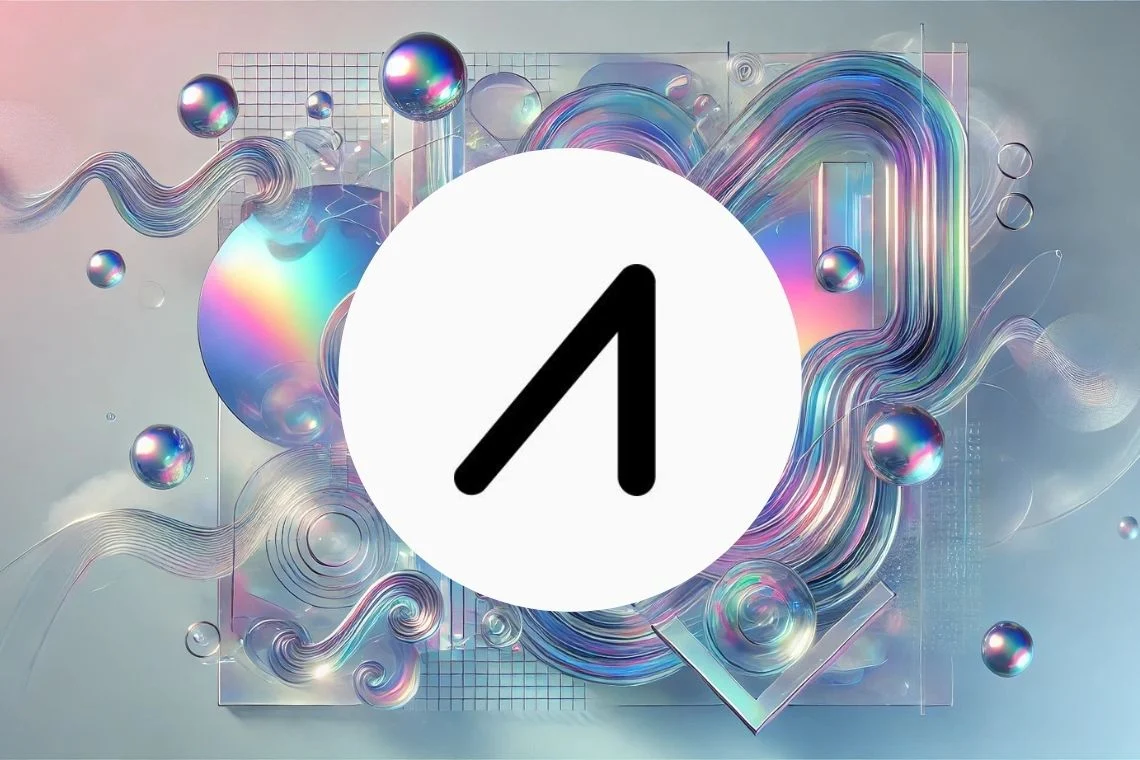
a year ago
AIOZ Network: Pioneering Decentralized Infrastructure in 2024
The AIOZ Network is a notable player in the burgeoning sector of Decentralised Physical Infrastructure Network (DePin). Founded in 2017 by Erman Tjiputra, this blockchain platform is designed to revolutionize digital content storage, transmission, and monetization. Utilizing a Delegated Proof-of-Stake (DPoS) consensus mechanism, AIOZ can process up to 1,400 transactions per second, showcasing its scalability. The network operates on a decentralized content delivery system powered by over 217,000 P2P nodes, which are rewarded with the native AIOZ token for their contributions. AIOZ also provides a decentralized marketplace for AI assets, allowing users to monetize their resources while addressing concerns related to data centralization and user privacy.
In 2024, the AIOZ token experienced remarkable growth, skyrocketing approximately 700% from $0.14 to $1.12. This surge was fueled by a bull wave that began in February, attracting significant investor interest. Despite a brief pause during the summer, the token's value resumed its upward trajectory in November, maintaining strong support above the EMA 50. Currently priced at $1.02 with a market capitalization of $1.14 billion, AIOZ ranks #86 on CoinMarketCap. Looking ahead to 2025, the token is expected to continue benefiting from the DePin trend, although potential bearish movements could see it drop to around $0.80.
While AIOZ Network operates within the Ethereum and Cosmos ecosystems, the majority of DePin activity is concentrated on Solana. A recent report highlighted that four of the five largest decentralized physical infrastructure networks are based on Solana, with Grass leading the pack by contributing 2.5 million devices. The DePin sector has seen a substantial increase in demand for data processing, with top projects earning $500 million in revenue, marking a 33-fold growth from the previous year. AIOZ, positioned 14th in terms of node count, continues to be a significant player in this rapidly evolving landscape.
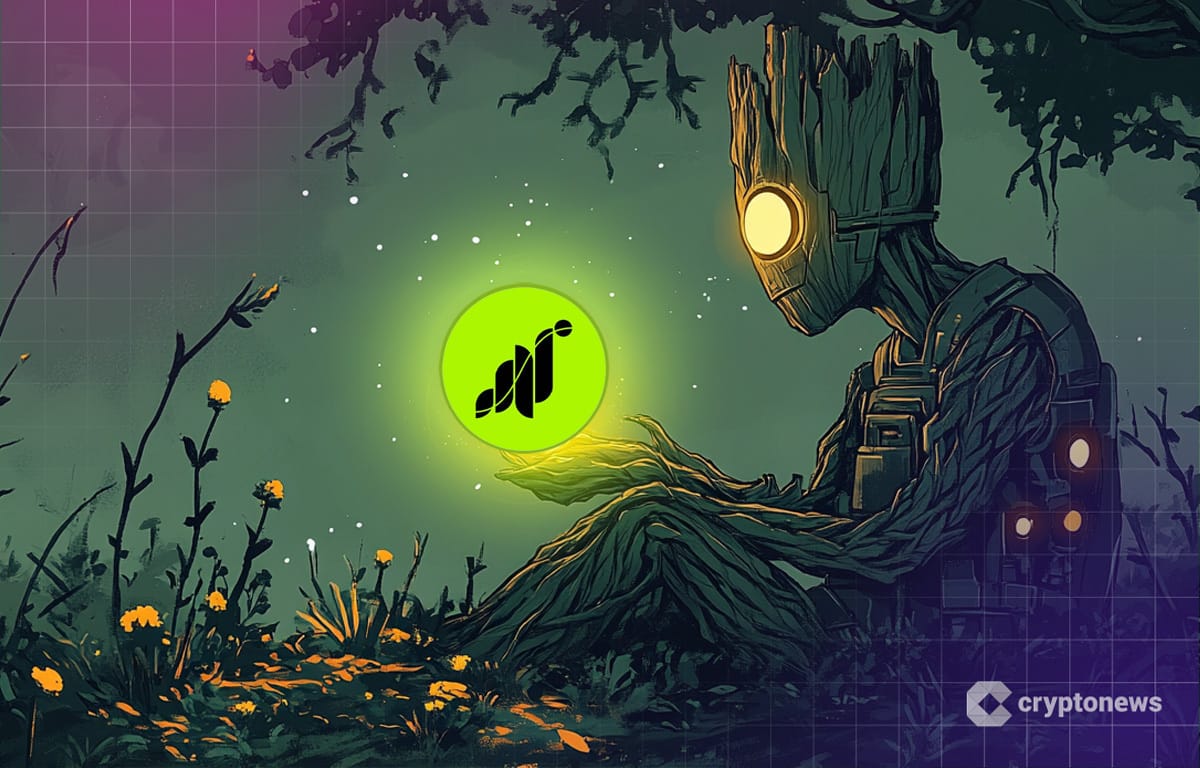
a year ago
Grass Cryptocurrency: A Promising Yet Challenging Journey Ahead
The cryptocurrency project Grass, built on the Solana blockchain, has recently made headlines with a remarkable 494% surge in price following its airdrop. Initially, the price peaked at $3.89 on November 8, 2024, but has since stabilized around $2.3 to $2.4. With 2 million users and a position among the top 15 Decentralized Physical Infrastructure Network (DePIN) coins, Grass shows significant potential, although it faces regulatory scrutiny and challenges regarding its data collection practices. The project allows users to earn passive income through web scraping, utilizing unused internet bandwidth to train artificial intelligence, which raises concerns about privacy and data security.
Despite the initial excitement surrounding the airdrop, which distributed 10% of the total supply to users, the price has seen fluctuations. Analysts suggest that while Grass has established itself in the market, it must navigate potential regulatory hurdles and the lack of an audit for its code. The project’s unique model, which involves nodes, routers, and validators to manage data collection, positions it well within the growing DePIN sector. However, the project's reliance on user data and the absence of transparency in its operations may hinder its long-term growth prospects.
Looking ahead, the high annual percentage yield (APY) for staking, estimated at around 50%, and the anticipated launch of an iOS app in Q1 2025 could reignite interest in Grass. As the project continues to evolve, its ability to maintain user engagement and adapt to regulatory landscapes will be crucial. The crypto community remains cautiously optimistic, with traders noting that while the price may not experience drastic changes, it could stabilize and potentially rise again as the project matures and expands its offerings.
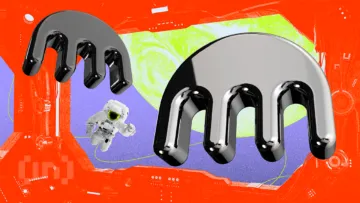
a year ago
Top DePIN Altcoins to Watch in December 2024
As November comes to a close and December 2024 approaches, investors are increasingly focusing on portfolio rebalancing and exploring new altcoin opportunities. The Decentralized Physical Infrastructure Network (DePIN) narrative is gaining traction, making it a significant sector to monitor. BeInCrypto has highlighted five top DePIN altcoins to watch in December, including Filecoin (FIL), Arweave (AR), Grass (GRASS), io.net (IO), and NetMind Token (NMT).
Filecoin (FIL) leads the pack with a market capitalization of $3.44 billion. Despite experiencing a decline in value during the second and third quarters, Filecoin has rebounded strongly, with a 56.22% price increase over the last month. Currently, the price momentum is positive, suggesting potential growth to $6.50 in early December. However, if the momentum shifts bearish, it could drop to $4.96. Arweave (AR) follows closely, having increased by 20.98% in the past week, currently priced at $21.13. The altcoin is facing resistance at $22.05, but if it breaks through, it could reach $24.57.
Grass (GRASS) has made headlines with a remarkable 300% increase in October, now priced at $3.48. If it maintains its bullish trend, it may surpass $3.90 and potentially reach $5. io.net (IO), known for being the largest decentralized AI computing network, has seen a 65.13% price increase, currently trading at $2.93. If the bullish trend continues, it could exceed $4. Lastly, NetMind Token (NMT) has surged by 76.10% recently, currently priced at $3.76, with a potential rise above $5 in December if bullish momentum persists. However, profit-taking could lead to a decrease to $2.72. Investors should remain vigilant as market conditions are subject to rapid changes.
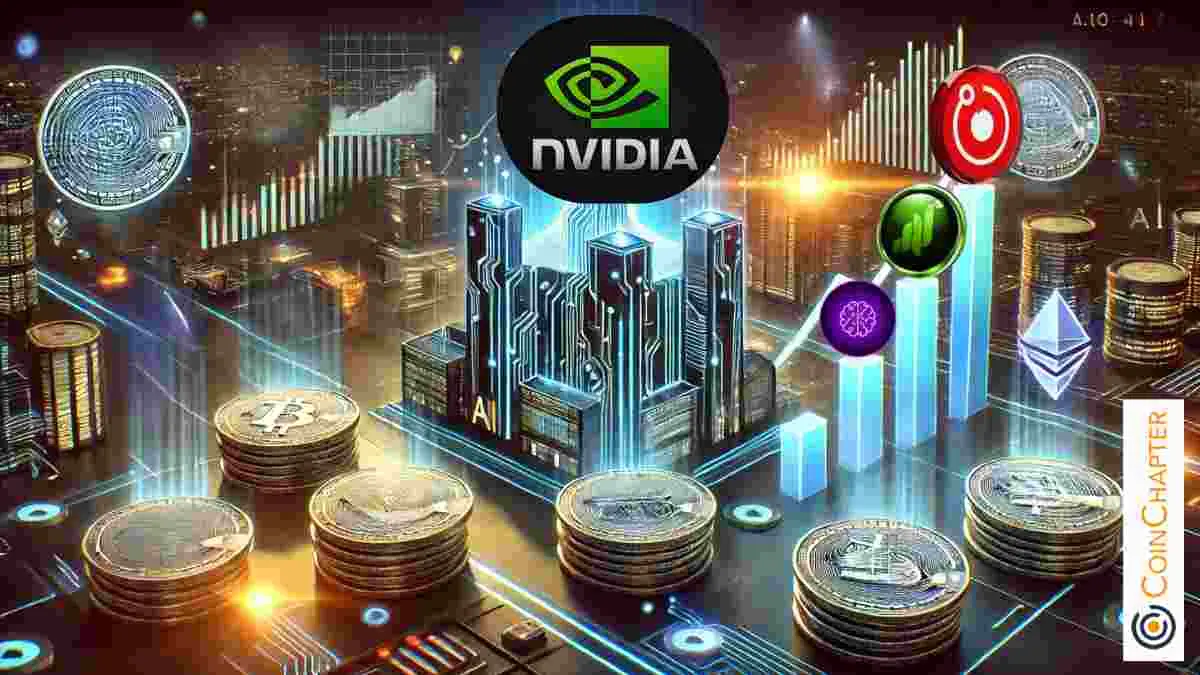
a year ago
NVIDIA's Upcoming Earnings Could Impact AI Token Market
NVIDIA, a leading player in GPU technology, is set to announce its Q3 fiscal year 2024 earnings on November 20. This announcement is highly anticipated within the cryptocurrency market, particularly for AI-focused tokens such as Render (RENDER), Grass (GRASS), and PAAL AI. Render has recently undergone a migration and rebranding from Ethereum to Solana, positioning itself as a prominent AI coin. Currently trading at $7.67, RENDER has shown a 3.75% increase over the past week, indicating growing investor confidence. Analysts suggest that if NVIDIA's earnings exceed expectations, RENDER could potentially rise to $8.83, with a bullish scenario reaching $11.86. However, there are concerns about a possible 'sell the news' effect that could lead to a price drop to $5.47 if enthusiasm diminishes.
Grass (GRASS), another AI token, has faced challenges, declining by 24.31% in the last week and currently trading at $2.36. It is positioned within a descending wedge pattern, which typically signals a potential breakout. The support level for GRASS is at $2.30, with resistance levels at $3.29 and $3.91. The token's RSI indicates oversold conditions, but weak trading volume suggests limited buying pressure. A strong performance from NVIDIA could shift sentiment positively for GRASS, while disappointing earnings may exacerbate its downward trend.
PAAL AI has experienced a volatile week, currently trading at $0.1878 after a significant recovery of 25.20%. This follows a drastic drop of 70% due to concerns surrounding a proposed merger with the ASI Alliance. The merger announcement led to a rapid sell-off, driven by worries over the token conversion ratio and a lengthy vesting period. Transparency regarding the merger is crucial, as highlighted by industry figures. The performance of NVIDIA's stock could greatly influence PAAL AI's trajectory, with potential for a rally or further decline depending on market demand and investor sentiment.

a year ago
GRASS Token Faces Selling Pressure Amid Price Decline
On November 8, the price of GRASS, the native token of the Solana-based Decentralized Physical Infrastructure Networks (DePIN) project, reached an all-time high of $3.95. However, following a decline in bullish sentiment and an increase in profit-taking activities, the token's price has since dropped by 27%. As of now, GRASS trades at $2.78, reflecting a 13% decline over the past 24 hours. Analysis of the GRASS/USD 4-hour chart indicates a significant uptick in selling pressure, with the Relative Strength Index (RSI) showing that more traders are selling than buying the token, currently sitting at a downward trend of 44.80.
The RSI is a key indicator that measures an asset's market conditions, with values above 70 indicating overbought conditions and below 30 suggesting oversold conditions. The current RSI reading of 44.80 implies that selling pressure is intensifying, as token holders are increasingly cashing in on their profits. Additionally, the Chaikin Money Flow (CMF), which assesses the flow of money into and out of an asset, is below zero at -0.04, further confirming the bearish outlook. A negative CMF indicates that sellers are dominating the market, adding to the concerns surrounding GRASS's price stability.
Despite the recent price decline, futures traders appear optimistic about a potential rebound. The funding rate for GRASS has remained positive since November 8, currently at 0.025%. This suggests that there is a greater demand for long positions, indicating that traders are still betting on a price recovery. However, if the selling pressure continues, GRASS may break below its current support level of $2.65 and potentially seek support at $2.26. If the bearish trend persists, the price could fall to $1.86. Conversely, a positive shift in market sentiment could see GRASS rally past the resistance at $3.22, aiming to reclaim its previous all-time high of $3.95.
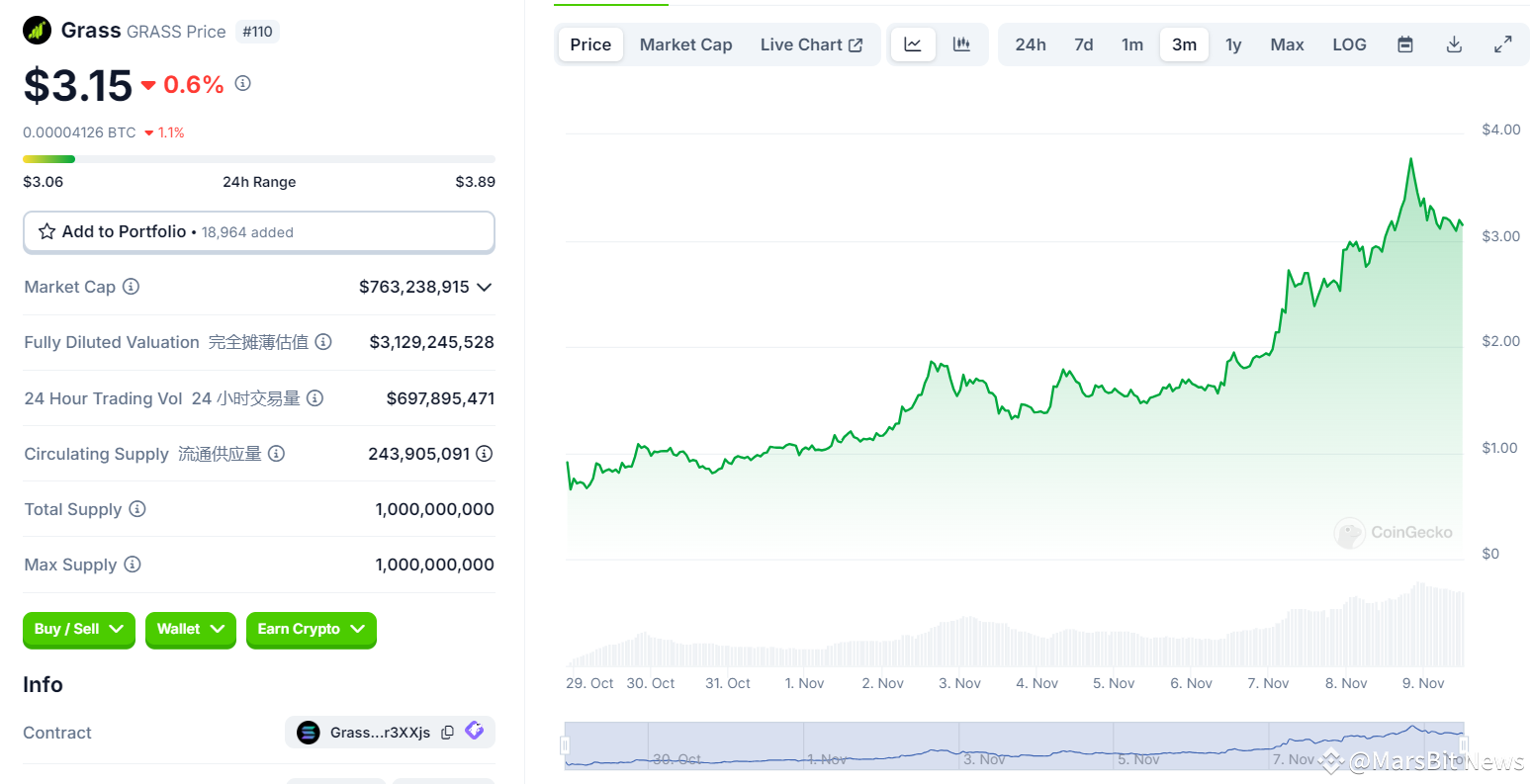
a year ago
GRASS Perpetual Contracts Launch Sparks Market Surge
Last night, Binance made headlines with the launch of GRASS perpetual contracts, which significantly boosted market sentiment. The price of GRASS surged to an impressive $3.5, marking a new record high, while trading volume exceeded $700 million within 24 hours. Since its inception on October 29, GRASS has experienced a staggering growth of over 400%. This meteoric rise has sparked interest in the underlying fundamentals of the coin, particularly its innovative approach to data monetization within the DePIN (Decentralized Physical Infrastructure Networks) framework. Supported by major venture capital firms like Polychain and Deiphi, GRASS is positioned as a frontrunner in the data economy, offering rewards for data contributions and challenging the traditional monopolistic data models.
The technical analysis of GRASS reveals a strong buying momentum, with the Relative Strength Index (RSI) climbing to 71.8, indicating an overbought condition. This rapid increase in price has attracted significant market attention, but it also raises concerns about potential pullbacks. The Ichimoku cloud chart suggests that GRASS is currently riding high, with key support levels around $2.9 and $2.4, which could cushion any necessary corrections. As the cryptocurrency market continues to evolve, the stability of GRASS's staking numbers—remaining above 26.6 million—demonstrates investor confidence in its long-term potential, despite the risks of profit-taking in a volatile environment.
Looking ahead, the DePIN sector is poised for substantial growth, with predictions estimating its market value could reach $3.5 trillion by 2028. This projection highlights the increasing demand for decentralized data solutions, particularly as AI technology continues to advance. GRASS stands out as a promising investment within this burgeoning landscape, appealing to those seeking to capitalize on the data revolution. However, investors must remain vigilant, balancing the excitement of rapid gains against the inherent risks of market fluctuations. The future of GRASS and the DePIN track may well depend on broader market trends and the ongoing evolution of data decentralization strategies.
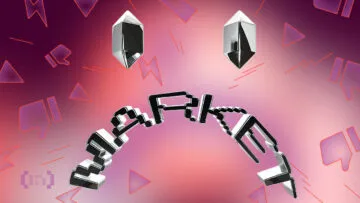
a year ago
Top Trending Cryptos: Drift, Notcoin, and Grass Make Waves
In the ever-evolving landscape of cryptocurrencies, today's top trending altcoins include Drift (DRIFT), Notcoin (NOT), and Grass (GRASS). Drift, the governance token of the Solana-based decentralized exchange Drift Protocol, is gaining traction following its recent listing on the South Korean exchange Upbit. The listing, which pairs DRIFT with Bitcoin (BTC), USDT, and the Korean Won (KRW), has led to a staggering 500% surge in trading volume and an 88% increase in price, currently sitting at $0.95. However, technical indicators suggest that DRIFT may be overbought, with a Relative Strength Index (RSI) reading of 77.05, indicating potential for a price retracement to $0.70 unless buying pressure continues to push it higher.
On the other hand, Notcoin (NOT) has not fared as well, experiencing a 16.69% decline in the last 24 hours, bringing its price down to $0.0063. Despite this downturn, Notcoin has formed a falling wedge pattern on the daily chart, which is typically a bullish reversal signal. If the price can hold above $0.0060, there is potential for a rebound towards $0.013. However, a drop below this level could see it fall further to $0.0056, indicating a precarious position for investors.
Grass (GRASS) continues to impress, having appeared on the trending list consistently over the past week. The token, associated with the Decentralized Physical Infrastructure Network (DePIN) project, has surged by 31.81% in the last 24 hours, making it one of the top performers among the top 100 cryptocurrencies. With a positive Moving Average Convergence Divergence (MACD) reading, there is optimism that GRASS could climb above $3.33. However, profit-taking by holders could lead to a decline below $2.50, highlighting the volatility inherent in the crypto market.

a year ago
CoinW Lists GRASS Token, Pioneering Decentralized Data Network for AI
In a significant move for the cryptocurrency market, CoinW, a leading trading platform, has announced the listing of GRASS, an innovative decentralized data network aimed at transforming data access for artificial intelligence (AI). The GRASS/USDT trading pair will be available starting October 28, 2024, at 14:00 (UTC). To commemorate this listing, CoinW is launching the "GRASS bounty program: Register & Trade & Retweet," which features a reward pool of 10,000 USDT, incentivizing user participation and engagement within the platform.
GRASS operates as a decentralized network that collects and organizes public web data, creating a valuable resource for AI model training. With nearly 2.5 million user-run nodes globally, GRASS has amassed a wealth of data, including over 500,000 media articles. Its unique "Sovereign Data Rollup" approach provides an ethical and community-driven solution to data acquisition, challenging traditional data monopolies. Additionally, the introduction of the Socrates dataset cleaning tool allows users to contribute high-quality, structured data, which is crucial for AI applications.
The GRASS token plays a vital role in the network, enabling holders to participate in transactions, staking, and governance. As the network grows, token holders will have the opportunity to stake their tokens, earn rewards, and vote on key decisions. With a total supply of 1 billion tokens, GRASS is designed to promote network growth and user engagement. The project has also fostered a strong community, boasting 468,000 Twitter followers and an active Discord group. By leveraging Solana's efficient technology, GRASS is set to become a significant player in the Web3 landscape, offering a decentralized alternative to conventional data sources.
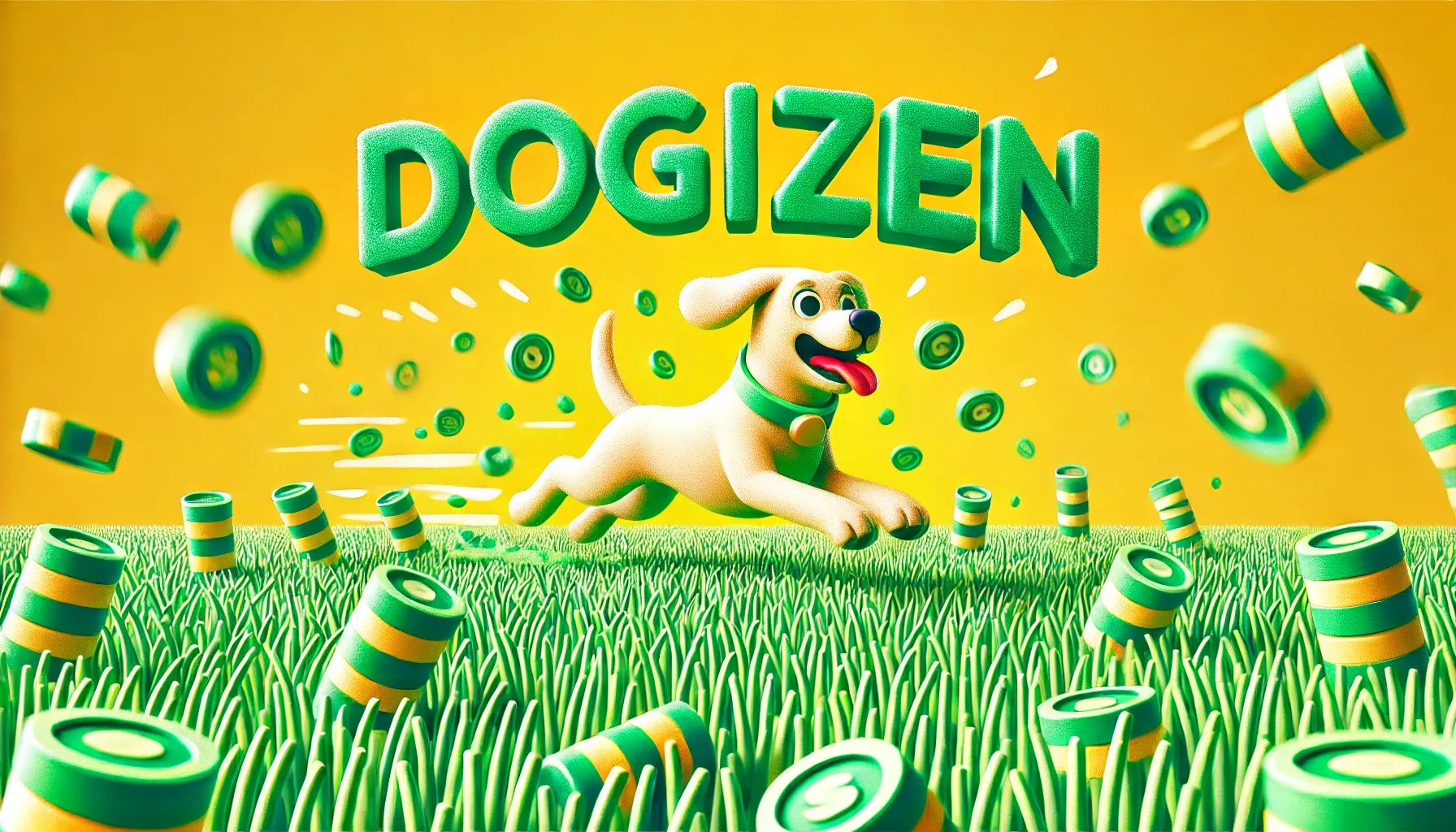
a year ago
Grass and Dogizen: Promising Tokens for Crypto Investors
In the ever-evolving landscape of cryptocurrency, two tokens, Grass and Dogizen, have emerged as promising options for investors seeking substantial gains. Grass is part of a decentralized physical infrastructure network (DePIN) that allows users to earn by renting out unused internet bandwidth. Following a recent airdrop, the GRASS token has seen a remarkable surge, doubling in value to reach an all-time high of $1.94. This innovative project not only integrates AI with DePIN but also ensures user privacy through a fully encrypted system, positioning itself as a frontrunner in the blockchain space.
On the other hand, Dogizen has made headlines as the first cryptocurrency to utilize Telegram for its presale, successfully raising $1.2 million. This unique approach attracted numerous buyers during its pre-sale phase, offering discounted access to the DOGIZ token. Dogizen aims to create a gaming universe within Telegram, set to launch in 2025, which could significantly boost its value. As the gaming sector experiences fluctuations, Dogizen's play-to-earn model and accessibility may attract a new wave of Web3 users, potentially leading to substantial returns for early investors.
While experts acknowledge that Grass has a more robust use case, they also highlight Dogizen's potential for growth, especially as it continues through its presale phase. As of November 5, Grass is trading at $1.62, reflecting a 5.65% increase in the last 24 hours, although its trading volume has decreased by 23.30%. With a market cap of $396.05 million, Grass's explosive growth may be stabilizing, while Dogizen's upcoming launch could present a lucrative opportunity for investors looking to capitalize on the next big trend in cryptocurrency.
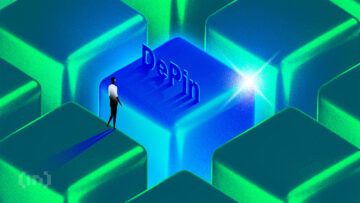
a year ago
Grass (GRASS) Cryptocurrency Faces Significant Price Drop Amid Bearish Sentiment
In the early hours of November 2, the price of Grass (GRASS) cryptocurrency was on the verge of reaching the $2 mark, but a significant 23.34% drop over the past 24 hours has interrupted its impressive week-long rally, bringing the price down to $1.35. This decline raises concerns about the potential for further decreases in GRASS's value. The recent analysis indicates that the bearish sentiment is gaining traction, suggesting that the price may continue to fall from its current level.
Grass is a layer-2 Decentralized Physical Infrastructure Networks (DePIN) project built on the Solana blockchain, which launched its native token on October 28. Initially, the altcoin experienced a remarkable surge of 100% within just a few days, aided by an airdrop distribution to users. However, this increase has now diminished to a 67% gain over the past week. The Bull Bear Power (BBP) indicator, which assesses the strength of buyers versus sellers, has fallen into negative territory, indicating that bearish forces are currently dominating the market.
Further analysis of the 1-hour chart reveals a double-top pattern, which typically signals a potential trend reversal. This pattern suggests that GRASS may have reached its local peak, with predictions indicating a possible decline to $1.08. However, if bullish traders can maintain support at $1.29, there is a chance for a rebound to $1.63. Investors are advised to stay vigilant and conduct thorough research as market conditions continue to evolve.
Signup for latest DePIN news and updates